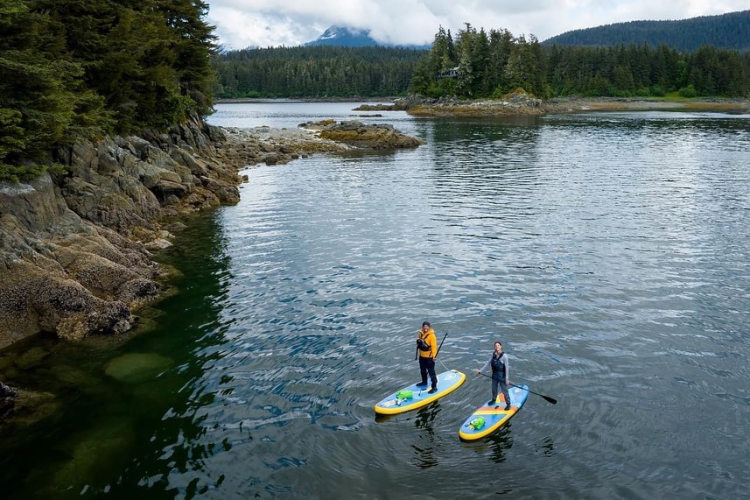Reduced Carbon Footprint in Manufacturing
Sustainable Materials and Processes
One of the key environmental benefits of inflatable paddle boards lies in their manufacturing process. Unlike traditional rigid paddle boards made from non-recyclable materials like fiberglass and epoxy, inflatable paddle boards are often constructed from PVC, a more recyclable material. Additionally, advancements in manufacturing technologies have led to more sustainable production processes, reducing overall carbon emissions.
Energy-Efficient Production
Producing inflatable paddle boards requires less energy compared to their rigid counterparts. The lightweight nature of these boards means less material is used, which not only decreases production energy but also reduces transportation emissions. The compact size of deflated boards allows for more efficient shipping, further minimizing the carbon footprint.
Minimal Impact on Marine Ecosystems
Gentle on Aquatic Life
Inflatable paddle boards have a softer exterior compared to rigid boards, which significantly reduces the risk of harming marine life. When a rigid board collides with underwater creatures or coral reefs, it can cause severe damage. In contrast, inflatable boards are less likely to inflict such harm, promoting a safer interaction with marine environments.
Silent Navigation
The quiet nature of inflatable paddle boards contributes to a less disruptive presence in aquatic habitats. Unlike motorized watercraft, paddle boards do not produce noise pollution, which can disturb wildlife. This silent navigation allows paddlers to enjoy the serenity of nature without negatively impacting the ecosystems they explore.
Promoting Eco-Tourism and Environmental Awareness
Encouraging Sustainable Practices
Inflatable paddle boarding encourages sustainable tourism by promoting activities that have minimal environmental impact. As people seek out natural landscapes to explore on their paddle boards, they develop a greater appreciation for these environments, fostering a sense of stewardship and responsibility towards nature conservation.
Educational Opportunities
Many paddle boarding tours and rental companies incorporate environmental education into their services. By highlighting the importance of preserving waterways and coastal areas, these businesses raise awareness among participants about the ecological significance of these habitats. This educational aspect helps build a community of environmentally conscious paddlers.
Reduced Dependence on Fossil Fuels
Human-Powered Recreation
Inflatable paddle boarding is a human-powered activity, meaning it does not rely on fossil fuels. Unlike motorboats or jet skis, paddle boards are propelled by the paddler’s own effort, making it an eco-friendly option for water-based recreation. This reduced dependence on fossil fuels helps decrease greenhouse gas emissions and combat climate change.
Supporting Clean Energy Initiatives
Many manufacturers of inflatable paddle boards are also supporters of clean energy initiatives. By investing in renewable energy sources for their production facilities and promoting sustainable practices, these companies contribute to a broader movement towards environmental sustainability. Consumers who choose inflatable paddle boards are indirectly supporting these green initiatives.
Long-Term Durability and Reduced Waste
Longevity and Maintenance
Inflatable paddle boards are designed for durability and longevity. With proper care and maintenance, these boards can last for many years, reducing the frequency of replacements and, consequently, waste. This longevity makes them a more sustainable choice compared to traditional boards that may require more frequent replacement.
Repairability
Inflatable paddle boards are often easier to repair than rigid boards. Minor punctures or damages can be quickly fixed with repair kits, extending the life of the board and preventing it from ending up in a landfill. This repairability enhances their environmental friendliness by promoting a culture of reuse rather than disposal.
Conclusion
Inflatable paddle boarding offers numerous environmental benefits, from reduced carbon footprints in manufacturing to minimal impact on marine ecosystems. By promoting eco-tourism, reducing dependence on fossil fuels, and offering durable, repairable options, inflatable paddle boards stand out as a sustainable choice for water enthusiasts. As more people embrace this activity, the positive environmental impact can only grow, fostering a deeper connection with nature and a greater commitment to its preservation.







